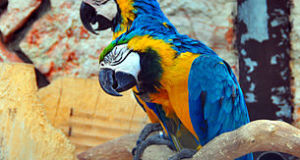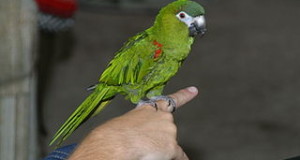
PDD Facts
PDD is a major concern because it is invariably fatal and infects over 50 species of common and rare birds in both the wild and captivity.
Birds afflicted with PDD suffer damage to the nerves that supply organs in the digestive system. Food is not digested and accumulates in the proventriculus (first part of the stomach); the buildup of food causes the proventriculus to dilate (which explains the disease’s name). Less commonly, nerves in the brain and spine may also be impacted.
Typical symptoms of PDD include weight loss, regurgitation of undigested food and, on occasion, loss of balance and coordination.
Current and Future Research
Working with ducks and Patagonian Conures, Texas A&M University researchers have conclusively established that ABV, the virus implicated in the disease in 2008, is indeed the cause of PDD.
Armed with this information, they can now begin to study the virus’ biology and the use of anti-virals and anti-inflmmatories as possible preventative measures and treatments. Future research will also focus on the role of raccoon droppings, which have been proposed as a possible source of Avian Bornavirus.
Further Reading
Please see Breaking Research News: PDD Virus Identified for more info on the first major break in this mystery.
You can read more about the current PDD research on the Texas A&M University Website.
Patagonian Conure image referenced from wikipedia and originally posted by Hedwig Storch
 That Bird Blog – Bird Care and History for Pet Birds
That Bird Blog – Bird Care and History for Pet Birds



